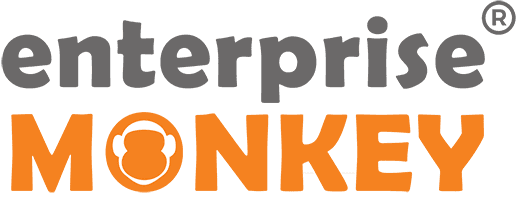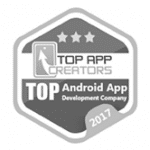So, you’ve just come up with the next big app idea? Must have thought about app protection beforehand? A true innovation, you’re certain the app will be as successful as Instagram or Snapchat. But put on the brakes for just a second. Before launching your idea to the world, you need to ensure that you have a complete app protection.
The good news is, legal protection is not difficult to obtain. To safeguard your app from potential copycats, here is your guide to intellectual property law, copyright, patents, non-disclosure agreements and more.
Intellectual property
Intellectual property (IP) concerns any creations of the mind (i.e. intellect), which can be legally protected by the owners. Moreover, Provided the concept is original and novel, a wide variety of inventions and ideas are eligible for IP protection.
Some of these include:
- Designs (i.e. company logos, etc.)
- Written words (i.e. scripts, novels, etc.)
- Apps and more.
Crucial for your business’ long-term financial success, IP rights give you the chance and time you need to launch your creation to the public.
The object of Australian IP law is twofold. First, to encourage entrepreneurs and inventors to create innovative products and processes.
And, second, to protect Australian businesses who develop unique IP to gain an advantage over competitors.
Under Australian law, there are four main categories of IP (some of which will be discussed in this article):
- Copyright
- Trademarks
- Patents
- Secret processes
- Registered designs
Copyright
As a business owner, your very livelihood can hinge on your ability to stop other businesses from stealing your unique app idea. Fortunately, copyright is very easy to obtain, as this form of IP requires no official registration.
What exactly does copyright protect?
The answer is, the original expression of information and/or ideas in the form of:
- Broadcasts
- Music
- Writing
- Visual images (moving and still)
- Sound recording
- Computer programs (this includes apps)
All of the aforementioned forms of expression are protected under the Copyright Act (1968). Although the Act hasn’t been updated for decades, it protects the creation of computer programs. Therefore, this protection can be extended to the creation of app ideas.
While copyright protection is free, your app idea must meet certain criteria to obtain it. It must:
Result from your skill and effort – This means the app must be born from a concept you came up with.
Be novel or original – Although the idea can share similarities with other apps, it must have a function which makes it unique.
Be published and available in material form – The submission of your app for approval can be regarded as “published”.
Trademark
Essentially, a trademark is an easy way to distinguish your app from competitors. Obtaining trademark protection enables you to commercially license, use or sell your trademark. Put simply, this means your trademark can’t be commercially used by anyone else.
Any feature(s) which distinguishes your app from others is eligible for trademark registration. Trademarkable features include:
- A number
- Letter
- Word or phrase
- Logo
- Smell
- Sound
- Shape
- Picture
How do I register to trademark my app idea?
To protect your trademark against competitors, there is a legal process to follow.
First, conduct a search of Australia’s Trade Marks Search System to ensure your desired trademark is available.
If available, you can apply for a standard trademark. Your application will take three to four months to assess.
How much does a trademark cost?
The cost will vary based on the level of protection you request. The general cost of a standard trademark is $250.
How long is my app idea trademarked?
Once your app is registered, the trademark is valid across all Australian states and territories for a decade. For international protection, you need to register your trademark in each individual country.
Patent
A patent provides all-encompassing protection for your app – covering everything from your original idea to its functionality.
Having said that, a patent is expensive and the setup process is lengthy (i.e. approval can take up to three years).
Due to the long approval process, you should only apply for a patent a year after your app has been launched to the public.
Do some app ideas have a better chance of approval than others?
Yes. Generally, apps which are born from an innovative and original idea have a far better chance of being approved.
You can further increase these chances if your idea can be repeated in other settings. This means the functions of the app can be replicated across other mediums (such as a website).
Who should apply for patent protection?
We recommend applying for a patent if you are fully invested in your app’s development idea and are confident of its long-term financial success.
Design protection
This is another form of patent protection. Unlike a traditional trademark, a design patent is designed to protect the visual design of your app idea. These design features include screens, icon sets, logos and backgrounds.
Can I protect more than one design?
Yes. In fact, when applying for design protection, you have several options. However, You can choose to protect one design, one design to be used across a variety of products or multiple designs.
In addition, design protection is less expensive and has a faster approval process than a regular patent.
How long does the registration process take?
Once you have applied to have your design officially registered, it can take up to three months to process the request.
How long does design protection last?
Design protection is valid for five years. After this time has expired, you can elect to renew it for a further five years.
Contracts
In app development, as in life, many hands make light work. Most likely, you’ll be working with a team of people to bring your idea to life. So, we recommend that you retain a lawyer to draw up some contracts.
A formal business contract protects everyone involved in the creation and development of your app. This legally binding agreement ensures you are paid for your work and saves you from expensive legal headaches if a team member does not deliver.
In terms of app development, the contracts you should focus on are a confidentiality agreement and a non-disclosure agreement (discussed below).
Confidentiality agreement
When developing an app, a confidentiality agreement is absolutely essential. Moreover, It is a legally binding agreement between all individuals or companies (or a combination of both) involved in the app’s development and creation which guards as a shield during app protection.
Under this agreement, all parties involved are prohibited from revealing confidential information about the app to outsiders or rival companies to ensure a complete app protection.
Such confidential information may include:
- Trade secrets
- Strategic and marketing plans
- App design and creation knowledge
- The technology used to develop the app and more
What should a confidentiality agreement cover?
To be legally enforceable, there are several items the agreement must cover, including:
- Whether the agreement’s one- or two-way
- All parties full, legal names and addresses
- The definition of “confidential information”
- The obligation to keep the information within secret
- The obligation to only use the information within for its specific purpose
What are the benefits of a confidentiality agreement?
The agreement allows for the free-flow of confidential information between everyone involved in the project. However, this ensures that competitors are unable to access any information which is private information relating to their project to ensure a complete app protection.
And, it ensures you can:
- Disclose your idea without risking its novelty, so you are eligible for a patent
- Even with a second application, you are still eligible for a patent
- Prevent your team from reverse-engineering your idea, and;
- Freely express confidential information to consultants or freelancers
Proprietary information and inventions agreement
A PIIA agreement is designed to protect the aforementioned confidential information, along with your intellectual property. This contract serves two key purposes:
- Prohibiting employees from revealing confidential information while creating the app and after it is launched
- Stipulating that employees own any inventions they create while carrying out their duties
Non-disclosure agreement
This agreement is widely used throughout the tech environment. However, It ensures that everyone involved in the project does not disclose confidential information to competitors.
While quite similar to a confidentiality agreement, a non-disclosure agreement (NDA) has some distinct differences. Moreover, these differences do not affect the legal enforceability of either contract. Rather, the difference lies in how the agreements are used.
What are the differences?
There are several discrete features which separate a confidentiality agreement and an NDA.
An NDA:
• Has a higher level of secrecy – As the name implies, you are bound to keep all confidential information relating to the app private.
• Is a one-way agreement – Most confidentiality agreements feature a two-way exchange of private information (i.e. between you and your team members). By contrast, an NDA includes a one-way exchange of sensitive information.
• Is frequently used by startups – NDAs are most commonly used by startup companies or in third-party situations (i.e. with customers, investors or suppliers).
• Is shorter than confidentiality agreement – Containing only essential information, NDAs are compressed to one or two pages.
Would you like some assistance on legally protecting your app idea? You can seek our legal services here
Are you interested in seeing your app grow from an idea to a functional program? At Enterprise Monkey, we specialise in app development, so contact us today to bring your plan to life.











